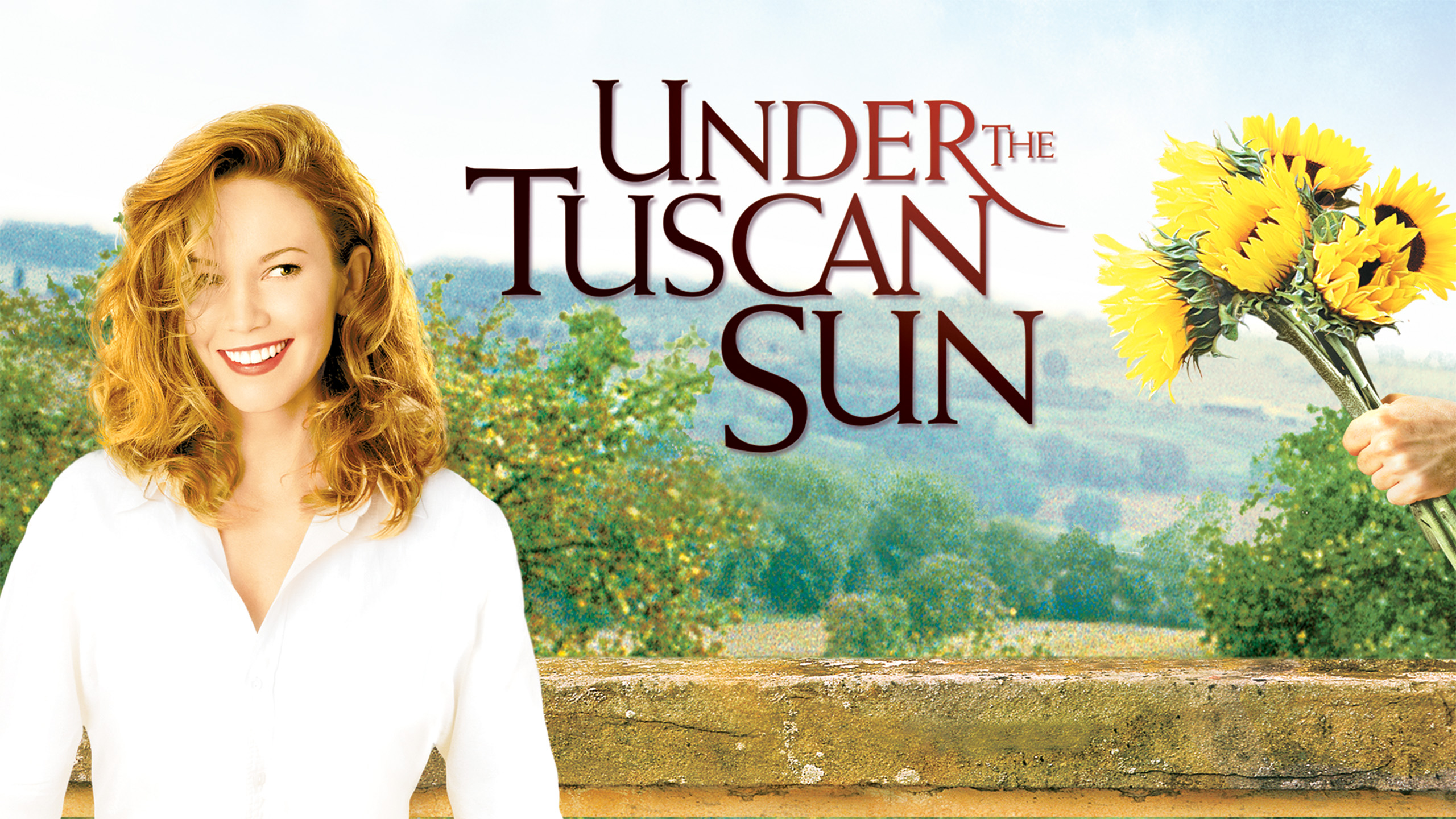𝙐𝒏𝙙𝒆𝙧 𝙩𝒉𝙚 𝙏𝒖𝙨𝒄𝙖𝒏 𝑺𝙪𝒏 (2003)

“Under the Tuscan Sun,” released in 2003, is a charming romantic comedy-drama directed by Audrey Wells, based on Frances Mayes’ memoir of the same name. The film stars Diane Lane as the protagonist, Frances, and beautifully captures themes of love, loss, and the transformative power of new beginnings set against the breathtaking backdrop of Tuscany, Italy. With its picturesque landscapes, engaging narrative, and relatable characters, the film resonates deeply with audiences seeking inspiration and hope.
The story begins with Frances, a successful but recently divorced writer living in San Francisco. At the start, she is depicted as a woman overwhelmed by heartache and uncertainty about her future. The film opens with her attending her best friend’s wedding, a poignant reminder of her own lost dreams of love and happiness. Diane Lane delivers a nuanced performance, capturing the vulnerability and resilience of a woman at a crossroads in her life. Her portrayal invites viewers to empathize with Frances as she navigates the tumultuous waters of her emotions.
In an impulsive decision, Frances embarks on a journey to Italy, encouraged by her friends who hope to help her heal. Upon arriving in Tuscany, she is captivated by the stunning landscapes, vibrant culture, and the allure of a life unburdened by her past. The cinematography beautifully captures the sun-drenched hills, charming villas, and lush vineyards, creating a visual feast that immerses viewers in the Italian countryside. This idyllic setting serves as a metaphor for Frances’ personal journey, symbolizing the potential for renewal and rediscovery.
While exploring the region, Frances comes across a dilapidated villa for sale. Despite its state of disrepair, she feels an immediate connection to the house and impulsively decides to purchase it. This decision marks a turning point in her life, representing her desire to reclaim control over her destiny and embrace the unknown. The villa becomes a character in its own right, embodying Frances’ hopes, dreams, and the challenges she must confront.
As Frances begins to renovate the villa, she encounters a colorful cast of characters who enrich her journey. Among them is the eccentric and passionate local contractor, Marcello (played by Raoul Bova), who becomes both a source of inspiration and romantic interest for Frances. Their chemistry is palpable, offering moments of levity and warmth amidst Frances’ struggles. The blossoming relationship serves as a reminder of the joy that love can bring, even after heartbreak.
Throughout her time in Tuscany, Frances also befriends a group of lively expatriates, including a vibrant older woman named Katherine (played by Lindsay Duncan) and a young woman named Patty (played by Sandra Oh). These friendships provide Frances with support, laughter, and new perspectives on life. The film highlights the importance of community and connection in the healing process, showcasing how bonds with others can lead to personal growth and understanding.
As Frances immerses herself in her new life, she learns to embrace spontaneity, take risks, and ultimately rediscover her passion for writing. The film beautifully portrays her transformation from a woman shackled by the past to one who is open to new experiences and possibilities. Frances’ journey of self-discovery is both relatable and inspiring, encouraging viewers to reflect on their own lives and the importance of embracing change.

The narrative explores themes of resilience and the power of love in its various forms. Frances learns that love is not only romantic but also found in friendships, family, and the connection to oneself. The film’s exploration of the complexities of relationships is heartfelt and poignant, showcasing the idea that love can manifest in many ways and that healing often comes from within.

The film’s pacing allows for moments of reflection and emotional depth. While it contains elements of lighthearted comedy, it does not shy away from the deeper issues of heartbreak and healing. Frances’ journey is intertwined with the landscapes of Tuscany, emphasizing the idea that change can be both beautiful and challenging. The scenic views serve as a backdrop for her emotional evolution, reminding viewers of the healing power of nature and art.

In conclusion, “Under the Tuscan Sun” is a delightful and uplifting film that captures the essence of self-discovery and the beauty of new beginnings. Diane Lane’s compelling performance, combined with Audrey Wells’ insightful direction, creates a narrative that is both entertaining and emotionally resonant. The film invites viewers to reflect on their own lives, embrace change, and recognize the potential for love and renewal, even in the face of adversity. With its stunning visuals, rich character development, and universal themes, “Under the Tuscan Sun” stands as a heartwarming reminder that life’s most meaningful journeys often lead us to unexpected places, both geographically and emotionally.











